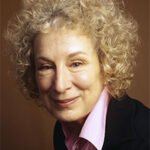Extraordinary
|
Writing Rules. Yes? No? Maybe?
I present to you, in all their glory, Elmore Leonard’s 10 Rules for Writing.
If it’s only to create atmosphere, and not a character’s reaction to the weather, you don’t want to go on too long. The reader is apt to leaf ahead looking for people. Rita here: I think there are exceptions like: It was a bright and sunny day on a planet where the last bright and sunny day was eight hundred years ago.
They can be annoying, especially a prologue following an introduction that comes after a foreword. But these are ordinarily found in nonfiction. A prologue in a novel is backstory, and you can drop it in anywhere you want.
The line of dialogue belongs to the character; the verb is the writer sticking his nose in. But said is far less intrusive than grumbled, gasped, cautioned, lied.
…he admonished gravely. To use an adverb this way (or almost any way) is a mortal sin.
You are allowed no more than two or three per 100,000 words of prose.
This rule doesn’t require an explanation. Rita here. I purchased a thriller audio book ‘everyone’ was talking about. I listened and had to buy the book. Why? I wanted to count how many freaking sentences the author used suddenly and quickly. Quite honestly, it was easier to count the sentences NOT containing those words. It was edited by a NY pub. OMG!
Once you start spelling words in dialogue phonetically and loading the page with apostrophes, you won’t be able to stop.
Rita again. I like this rule.
Even if you’re good at it, you don’t want descriptions that bring the action, the flow of the story, to a standstill. And finally:
Think of what you skip reading a novel: thick paragraphs of prose you can see have too many words in them. What the writer is doing, he’s writing, perpetrating hooptedoodle, perhaps taking another shot at the weather, or has gone into the character’s head, and the reader either knows what the guy’s thinking or doesn’t care. I’ll bet you don’t skip dialogue. Rita here. (will that chick ever go away?) Three books this summer, THREE, I skipped more than read.) My most important rule is one that sums up the 10. If it sounds like writing, I rewrite it. I can’t allow what we learned in English composition to disrupt the sound and rhythm of the narrative. It’s my attempt to remain invisible, not distract the reader from the story with obvious writing. Rita here dancing around – Yes. Yes, and YES. I would rather read a book that has some typos, maybe a plot problem mixed with a couple of continuity errors that is a great story with a brilliant voice than some grammatically correct, with all the proper punctuation, book that has been so stripped of voice by editing that it becomes a chuckawalla book (a book you chuck against the wall and move on) What do you think of the rules? Rita
|

 |
|||||




















